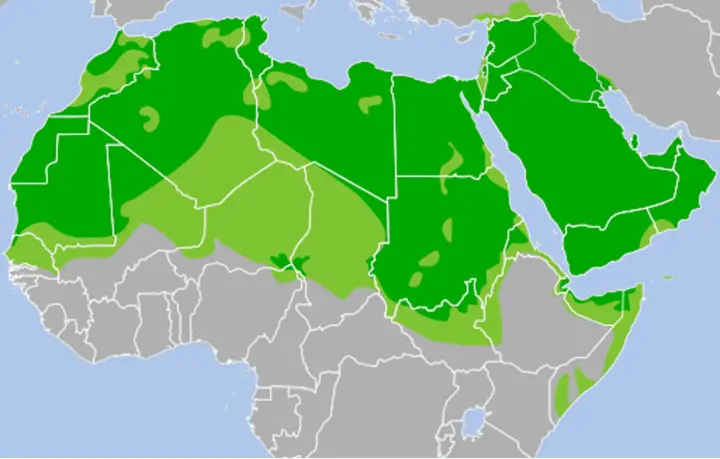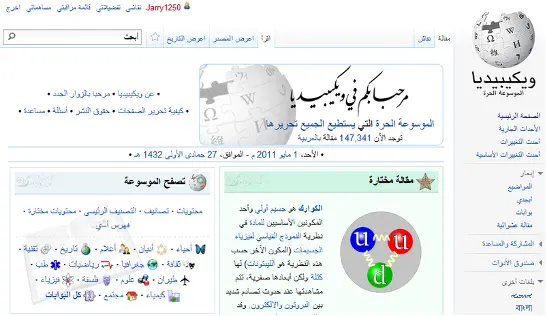What makes the global demand for Arabic grow?
A native language refers to the language in which an individual grew up speaking the language from early childhood. Arabic has over 370 million people worldwide who speak it as a mother tongue. For many Arabs around the world, the growing Arabic language is a source of pride. It serves as a reminder of the deep cultural heritage shared by all Arabs. The Arabic language has played a vital role in shaping the history and identity of the Arab world. From the poetry and literature of ancient Arab poets to the modern political, economic and academic developments that have shaped the Arab world and the rest of the world. Not surprisingly, the United Nations dedicates World Arabic Language Day to the eighteenth of December. But the growth of the Arabic language also reflects the changing global landscape and the importance of the MENA region globally. This article examines the reasons why the demand for learning Arabic is increasing, and the demand for Arabic speakers is increasing.
Recommend
Show key points
- Arabic, spoken natively by over 370 million people, holds deep cultural and historical significance across the Arab world.
- The increasing global demand for Arabic speakers is driven by geopolitical shifts and the strategic importance of the MENA region.
- Diverse Arabic dialects—from classical to colloquial—reflect the linguistic richness and adaptability of the language.
- ADVERTISEMENT
- International businesses urgently seek qualified Arabic speakers due to a growing job market and a shortage of multilingual professionals.
- Migration and globalization have amplified the spread of Arabic, requiring services and information to be translated into Arabic in host countries.
- The prominence of Arabic in sectors like energy, policy, and media has intensified translation needs in technical, legal, and entertainment fields.
- With Arabic ranking as the fourth most used language on the Internet, companies are investing in Arabic machine translation to capture digital audiences.
Cultural significance:

The Arabic language influenced many other languages through many of the vocabulary that entered it. The growth of the Arabic language highlights the linguistic diversity of the Arab world. They are spoken in a wide range of dialects and forms. These range from classical Arabic in literature, to a less difficult language such as news and diplomacy, to the colloquial dialects spoken daily by people across the Arab world. Projections indicate that the top five languages for 2050 are likely to be Spanish, Chinese, English, Hindi-Urdu and Arabic.
International Companies:
The ability to communicate in different languages is essential. There is a huge job market for Arabic speakers and there is a great need for multilingual speakers who understand Arabic. Due to the scarcity of qualified applicants, companies strive to recruit and retain people with these qualifications. On the other hand, there are hundreds of jobs available at any given moment, and translating job descriptions and job advertisements into the candidate's native language can give the company the competitive edge it needs to identify and hire a highly skilled Arabic speaker.
Global mobility:

Corporate transfers, migration, expatriation, and repatriation all refer to people moving from one country to another or from one continent to another for a variety of reasons. With the advancement of travel technology, improved and more cost-effective communications, this trend has increased exponentially. It is well known that when individuals migrate away from their home countries, their languages and cultures spread with them. For many years, Arabic speakers migrated to almost every continent, but this trend has accelerated in the past thirty years. As a result, countries that often welcome Arabs need to provide medical, legal, and business information in Arabic.
Policy:

The Middle East as a whole has undergone a lot of political transformations and the current geopolitical environment has sparked interest in the Middle East. Take a look at Arab countries such as Tunisia, Libya, Egypt, Syria, Iraq, Yemen, Palestine, and the Gulf countries, and then add all their neighbors to get a better understanding of the extent of political activity now underway. Big data translations, intelligence transcriptions, trade agreements, government documents have seen a rise in demand, and even religious translations are in high demand, as many Middle Eastern governments increase their investments in religious translation as they counter extremist ideology.
Energy Sector:

No one in the Middle East can think without thinking about oil. Many Arabic-speaking countries remain heavily dependent on oil, gas and natural resources, despite attempts to diversify their economies. Surprisingly, the Middle East holds 53% of the world's oil reserves. On the one hand, all companies operating in the oil industry have enormous translation needs that include everything from recruitment and safety, to sales and marketing. On the other hand, many countries in the Middle East are investing heavily in green technologies and environmentally friendly energy sources outside of oil. Arabic translation will be further enhanced by the upcoming expansion of the renewable energy market.
Internet:

The numbers indicating that the Middle East population is making up a large part of the Internet's hub locations are growing by the day. There are more than 242 million Arabic-speaking Internet users. Arabic is now the fourth most popular language online after English, Chinese and Spanish. News on the Internet and social media must be translated. Therefore, there is a huge demand for the Arabic language now, and as a result, major companies are racing to develop their own machine translation engines into Arabic, in order to dominate the market.
Media:
The significant rise in demand for Arabic translations is largely due to the media. TV shows, films, periodicals, and other media should be translated and Arabized for Arabic-speaking audiences, and in the opposite direction, albeit to a lesser extent. TV shows are self-contained, and their need for high-quality subtitles places a strain on the resources of the Arabic translation industry.

The growth of the Arabic language is a positive and exciting development for individuals around the world; it truly reflects the enduring power and importance of the Arab world, and the cultural and linguistic diversity that makes the Arab world so influential and dynamic. The Arabic language is full of endless opportunities it offers to the world, from its cultural traditions and history to its growing economic, innovative and political importance.
![]()
The mysterious abandonment of Cahokia: The Lost City of Ancient America
Once a bustling hub near the Mississippi River, Cahokia was North America's largest pre-Columbian city, known for its massive Monks Mound and smart urban planning. By the 14th century, it was mysteriously abandoned, leaving behind ruins that still intrigue archaeologists and visitors today. more- ADVERTISEMENT
![]()
The most expensive paintings that you could have painted yourself
The Most Expensive Paintings You Probably Could Have Painted Yourself more- ADVERTISEMENT
![]()
3 inspiring success stories in difficult times
Fred DeLuca’s journey from washing dishes to founding Subway proves that persistence can turn a simple idea into a global empire, while Steve Jobs and Paulo Coelho show how resilience in the face of setbacks can lead to world-changing success and creative brilliance. more- ADVERTISEMENT
![]()
Why aren't all the earth's oceans the same salinity?
Ocean salinity changes because of things like evaporation, rainfall, river flows, and ocean currents. The Red Sea is super salty due to high heat and little rain, while areas like the Bay of Bengal are fresher from heavy rainfall. These differences help shape ocean currents and marine life. more- ADVERTISEMENT
![]()
At each moment, there are about 2,000 thunderstorms occurring on Earth.
Thunderstorms are powerful and common, with up to 2,000 happening worldwide at once. Florida tops the U.S. in stormy days, but Venezuela's Lake Maracaibo holds the lightning strike crown. When thunder roars, go inside—lightning is closer than you think and more dangerous than most realize. more- ADVERTISEMENT
![]()
The solar system had nine planets. Maybe he's still doing it? Here's the latest space news today
Pluto’s “demotion” in 2006 marked the start of an exciting new chapter in space discovery, revealing a growing family of dwarf planets and pointing toward a possible mysterious ninth planet. With powerful tools like the James Webb Telescope, we’re closer than ever to uncovering strange new worlds—even beyond our solar system. more- ADVERTISEMENT
![]()
Debate about colors: does matter or brain determine?
Color isn’t just a property of objects—it’s a mix of light, brain interpretation, and even emotion. The dress debate proved we don’t all see the same thing, and for some animals, "red" doesn’t even exist. Turns out, what we see may be more illusion than reality. more- ADVERTISEMENT
![]()
Mount St. Helens blast and rebirth
Mount St. Helens, once the site of a devastating eruption in 1980, has become a powerful symbol of nature’s resilience. Despite the destruction, life slowly returned, turning a barren land into a thriving ecosystem once again. Today, it stands as both a natural wonder and an educational destination. more- ADVERTISEMENT
![]()
Will AI be able to design itself?
Experts are divided on whether AI can design itself. While some see it as an exciting possibility driven by self-learning and evolution, others warn of ethical risks, control loss, and high economic cost. Even dreamers must face harsh realities—especially the shocking price tag of pursuing this vision. more- ADVERTISEMENT
![]()
Why do some people attract mosquitoes like magnets, others don't?
Why some popele are Mosquito Magnet, some NOT? more- ADVERTISEMENT





















